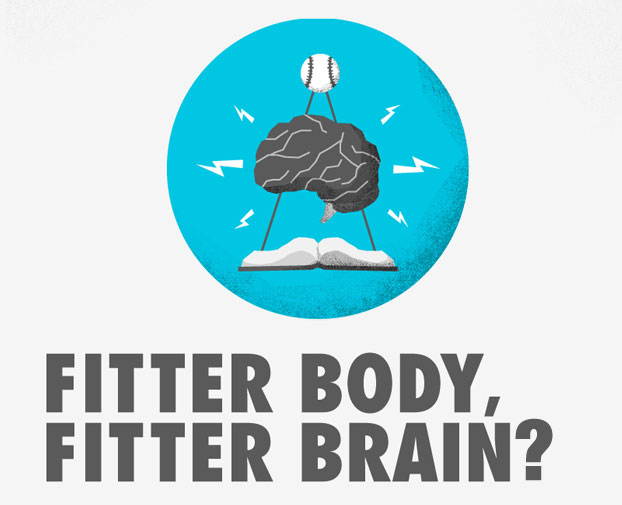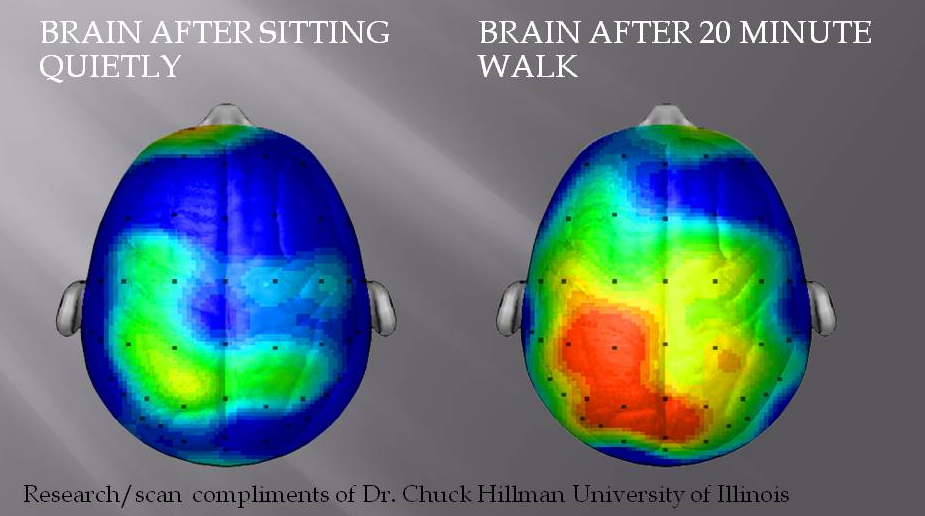
So your already a Gym Junkie and you’re already exercising, but did you know that exercising gives back to your brain?
More and more studies show that there is a direct link between your brain performance and getting a healthy amount of exercise in your daily life. This also means that there is a way to optimize the times that we exercise in order to get the most kick out of the brain-boosting effects of exercise.
So while exercise is widely known for boosting self-confidence, energy levels and overall health, it’s now proven that vigorous exercise can make you smarter and perform better mentally.
Workout For Your Brain
For many, this will come as no surprise. A healthy fitness routine is part of a balanced lifestyle that leads to improvements in all areas of our lives. However, for work and personal development, early morning exercise may be the key to unlocking new levels of your own potential. Not only that but it could also lead to earning more money at work, I talk about this with one of my past blog articles here.
Working out goes beyond just your body…
What this comes down to is that exercise is really not just about your body—it’s about your brain. When it comes to ailments caused by lack of proper diet and exercise, the list goes on for days. However, currently, the symptoms of many psychological conditions like depression and anxiety are commonly treated with psychoactive drugs. Now, more and more experts are suggesting that the right prescription is really an hour of exercise.

One of the foremost authorities on the new science of exercise and the brain is John J. Ratey, MD, an associate professor from Harvard. In his book A Users Guide to the Brain, Ratey compares exercise to the effectiveness of Ritalin or Prozac and cites the power of movement to improve mood, focus and feelings of well-being.
What’s important about this for health conscious individuals is that it represents an opportunity for an alternative lifestyle in which an individual can cope or even overcome their symptoms without the use of chemicals.
Exercise Your Mind With Exorphin’s
While many athletes refer to the ‘runners high’ or endorphin burst they achieve through working out, for many people this boost could be what their brains need to function at their best. Stephen C. Putnam has become an established expert on adult ADD/ADHD and has dedicated much of his career to battling the symptoms related to these conditions. Putnam suggests that the need for exercise for optimal brain function is particularly important to people with ADHD or inability to focus.
Interestingly enough, Putnam addresses this connection in his book Nature’s Ritalin for the Marathon Mind. In the book, Putnam includes the example of a study of children who were given the chance to run around for 15 to 45 minutes before class. The effect was, not surprisingly, extremely positive. While schools have for many years provided students with a break only midway through their morning if at all, it would seem that beginning the day with recess might be the key to unlocking a room full of focused students. This study also found that the positive effects on the students’ ability to sit still and focus on their work lasted for several hours, as many as four for many students.
Working out has been proven to help you focus…
Putting this in perspective for our adult lives doesn’t take much calculation. If it’s at all possible given your schedule, an early morning workout, even just a half an hour of cardio or low impact work could play a major role in how the rest of your day plays out. While many bodybuilders like to their time at the gym, and others may need several hours to conduct a workout, for those with a busy day ahead, a little change of your schedule could make a big difference.
Putnam’s studies also shed light on other physiological effects of exercise including the possible growth of new stem cells. Based on research performed using animals, Putnam suggests that exercise, may really boost new stem cell growth. The impact this has on the body is significant, having a refreshing effect for the brain and numerous other body parts. Putnam goes as far as to refer to exercise as miracle grow for the brain.

The stimulation that exercise produces for the nervous system is the root of its positive impact on brain function. Exercise causes the brain to be flushed with happy, pleasure inducing chemicals like serotonin and dopamine. The flood of these brain chemicals is what produces the ‘runners high’ but more importantly, this is what produces the feeling of well being that enables us to approach the rest of our day, outside the gym.
Working out can even improve brain function…
There is also a connection between positive body image and optimum performance—essentially when we know we look good, we feel good and approach every situation with an increased level of confidence. This combines with the mental sharpness, refreshed feeling and positive morale that is built by exercise.
When we’re not exercising, there are only a limited number of ways that our brains experience the endorphin rush that exercise provides. Depression and lethargy have a tendency to feed on each other. Objects in motion tend to stay in motion and objects at rest stay at rest until another force acts upon them. We have the ability to make a choice to exercise and move our bodies and provide a natural burst of positive brain chemicals.
This is not to suggest that there are not serious cases in which depression and anxiety must be treated with clinical care. However, those suffering from mild symptoms who are considering the path of pharmaceutical treatment, it’s worth first considering how much power we have to improve the way we feel through exercise.
A Duke study involved 150 people suffering from the symptoms of depression, divided into groups with some participants being treated with Zoloft and others being assigned exercise. While all the groups reported feeling ‘better’ after three months, the group prescribed exercise had a lasting improvement that went far past 6 months. By this time, other participants had reported slipping back into depression symptoms.
One of the things that many people learn through a training regimen is that the positive impacts of exercise cross over into many other aspects of life, from our love life to our professional life. Now it would seem that science has proven a direct line between optimum brain function being directly tied to exercise.
Conclusion:
Most Gym Junkies know they feel better after working out. The burst of endorphins we experience is part of what keeps us going back to the gym to keep pushing and improving. However, it is also this burst of serotonin and dopamine that refreshes the brain and instills a sense of well-being.
The proven science behind exercise and the brain has established a new option for treating our own conditions and improving our mental faculties. The positive impacts of exercise on the nervous system are being documented on new levels, even as far as producing new stem cells. While many athletes have experienced the benefits of exercise on the brain, it is always remarkable to witness the power of the human body and brain. Next time you have a big day at the office or school, try starting your day with the gym.
-Terry Asher
Terry
Latest posts by Terry (see all)
- How Important Are Net Carbs For Building Huge Muscle? - Apr 28, 2017
- The Matt Damon Workout Explained - Apr 27, 2017
- Watercress – Benefits And The Best Way To Consume It - Apr 26, 2017












Working out does make you smarter